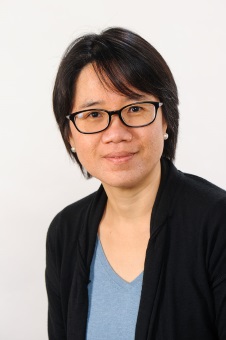 The Department of Politics at the University of Otago celebrates 50 years of teaching and research this year. This is the fourth in a monthly series of celebratory reflections on politics during the past 50 years. This month Dr Lena Tan discusses the global south.
The Department of Politics at the University of Otago celebrates 50 years of teaching and research this year. This is the fourth in a monthly series of celebratory reflections on politics during the past 50 years. This month Dr Lena Tan discusses the global south.
For the past 50 years, the Global South has been accorded a peripheral role in world politics. In the 1960s, states across Asia, Africa, and the Middle East had just emerged out of centuries of colonial subjugation and exploitation.
Together with states in Central and South America, they grappled with the task of building and consolidating new nations and states in an international landscape dominated by the US, the USSR and the exigencies of the Cold War.
In this environment, the Global South became the laboratory for experiments in political and economic development directed by the Global North. Often rooted in theories with universalist pretensions, these experiments were, more often than not, profoundly Eurocentric.
There were also areas of the Global South that became embroiled in highly destructive proxy wars and are still suffering from the repercussions of unexploded landmines and unresolved domestic political and social issues today. In other words, the Global South was the object of economic, political and military interventions by the much more powerful West, even decades after achieving independence.
Despite their many material disadvantages, the Global South resisted the unequal structural economic realities that were hoisted upon them. They acted through activities in the United Nations Conference on Trade and Development and attempted to create commodity cartels after the success of the Organisation of the Petroleum Exporting Countries (Opec) in the 1970s.
Instead of choosing between American and Soviet ideological visions of global order, they promoted an alternative - the Third World Project - which was first inaugurated during the 1955 Asia-Africa Conference in Bandung, and, later, through various UN agencies and the Non-Aligned Movement.
The Third World Project sought peace through the limitation and reduction of armed forces and armaments, economic development through new and fairer rules in the international economic system, and a world that would be more just through reforming the architecture of the post-World War 2 international political system into one that was more democratic.
Various domestic and international political and economic obstacles, however, ensured these goals fell by the wayside as the 1970s unfolded. In the 1980s, the debt crisis crippled and decimated many of these states, putting an end, it seemed, to the project and its lofty, egalitarian goals.
The 2000s, however, saw the advent of two major developments that would challenge the status quo in the relations between the North and the South. The first was the events of 9/11. Besides the terrible and senseless loss of lives that day, the destruction of the World Trade Centre in New York and the attack on the Pentagon can also be read as strikes at the very heart of American (and Western) economic and military hegemony by the disgruntled and disenfranchised from the periphery.
The second development came in the form of rising powers such as China, Brazil, South Africa, and other emerging economies around the world that were experiencing high levels of growth as they became more deeply integrated into the neoliberal global economy.
This economic growth provided the basis for, among other things, China's growing role and presence not only in Asia but across Africa and South America, Indian and Chinese challenges to the US and the European Union regarding rules in the international trading system and in climate change negotiations, and efforts to reform the Security Council of the United Nations.
These developments are extremely significant for world politics in the 21st century. While all agree that terrorism must be defeated, solutions to how it can be effectively done still elude those in the hallways of power in Washington, London and Brussels.
There are also fundamental disagreements regarding the consequences of the rise of new powers for world order. Optimists herald the peaceful arrival of new powers that will function within the same rules and norms that have been part of the world order of the past 70 years. Others are more pessimistic, portending war and conflict between the declining American hegemon and its challengers in the near future.
While the rise of the Global South will certainly challenge many aspects the status quo in the decades to come, one factor fundamental to the consequences of these development and changes remains - international politics is not just about power but, also, critically, about how we manage our encounters with difference in the world.
Since the beginning of this new century, we have been witness to two main ways of managing these encounters. The first is very much in the mode of George W. Bush and Donald Trump, whose first instincts appear to be to put America first, regardless of the context, history or circumstances of the encounter, while the second is represented by Barack Obama's respect for, and engagement with, difference.
Ultimately, reflecting seriously and critically on how these North-South encounters have unfolded since Columbus arrived in the Americas in 1492 will do much to ensure that we do not continue to repeat the tragedies of the past in the 21st century.
Reproduced with permission from the Otago Daily Times. Read the original article here.
